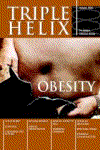Edwin Black painstakingly traces the development of eugenic ideology, from its early days in British academia to the take over by wellfunded American institutions, and its later disgrace in Hitler's Third Reich. Eugenic ideals about the superior white 'Nordic' race were so unquestioningly accepted in governmental and 'society' circles, that I was frequently astounded. The strong relationship forged between American and German eugenicists, and the jealous respect held for Nazi scientists as they enacted eugenic policies also appals.
At some 550 pages of dense text this does not make easy reading, but Black's journalistic talent and eye for a good angle have resulted in a very engaging book. The content is expansive, with 'More than fifty researchers in fifteen countries at more than one hundred institutions, some 50,000 documents, together with hundreds of pages of translation', making an impressive case against eugenics, but also causing some repetition. This is partly due to the book's construction, which is not purely chronological. Rather, the author traces eugenic trends through the pre-war years from a variety of perspectives. While this makes the book more accessible, allowing a personal angle and character development, it may not appeal to those who prefer a clear time-line of events.
For those who like modern history and investigations of the human condition, it's a must-read. It makes an interesting addition to other explorations of the development and decline of Nazi Germany. There are also lessons: the thinking behind the concentration camps didn't solely come from the mind of one dictator. Rather, a philosophy under discussion between academics and physicians in Europe and America was played out to extreme ends in one country. Perhaps we should be more careful about what we are prepared to discuss within the confines of academic walls.
Current proponents of genetic developments or euthanasia are keen to distance themselves from the old eugenics movement. In the final chapters Black looks to the future of 'newgenics' - the explosion of genetic science that enables us to pursue certain eugenic goals under a more sanitised banner. Whilst supporting the health benefits on offer, he warns that we need to guard against discrimination if we are to avoid the same trap that the first eugenicists fell into.
































